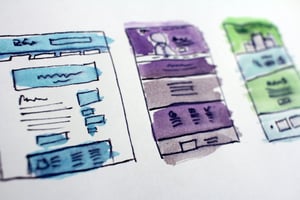
What B2B Companies Can Learn From B2C Companies About Growing Loyalty
Most people are familiar with how organizations and companies are typically assigned to one of two sectors: B2B and B2C. It starts in the name: business-to-business (B2B) and business-to-consumer (B2C), and each has its unique traits, customs, and norms. For example, one side utilizes a long sales process, the other thrives on more instantaneous purchasing.
While some may think the two sectors wouldn't overlap, there's a lot each side can learn from each other, especially when it comes to how the customer experience is evolving.
Understanding The Difference Between B2C and B2B Industries
The B2C marketing and sales process is geared towards the needs, interests, and challenges of an individual. The buyer is nearly always making a purchase on behalf of themselves or for another individual. While some consumer research will go into a pre-purchase, B2C marketing also allows for more spontaneous, impulsive purchases made at the moment by the individual.
B2B marketing and sales by contrast is about understanding the needs, interests, or challenges of an organization. A B2B buyer is typically not just an individual, but a group or committee purchasing on behalf of an organization or a business. Because the end target is more than just an individual, the sales process is longer and more research-intense; multiple factors and options will be weighed before committing to a particular product or retailer.
Knowing these differences, what exactly can B2B companies learn from B2C companies?
1. Incorporating Personalization
From a consumer's first brand interaction to their most recent purchase, B2C companies are constantly fine-tuning how they personalize their customer engagement across the entire buying cycle. B2C companies are finding success by providing relevant and timely messaging such as product recommendations, special offers, new launches, and other types of communications that help their customers discover and purchase their desired products. Customers feel more recognized and connected to a brand when they receive customized, one-on-one messaging as opposed to generic mass-market offers.
B2B companies can do the same by incorporating more personalized messaging for their customer bases. Customer relationships are already a significant part of the foundation for B2B selling; offering personalized messaging or content is another step in how B2B sellers can connect more closely with their ideal customers. Utilizing personalization and other strategies such as account-based marketing is how B2B companies can drive similar success as their B2C counterparts.
2. Expanding and Customizing Rewards
B2C companies are tapping into the wants, needs, and desires of their customer bases to find inspiration for rewards. Points, discounts, and coupons are good financial incentives, but more companies are also finding success through incorporating more experience-based rewards, such as access to exclusive events or product releases, member-only offers, and other one-on-one rewards.
B2B companies can follow the B2C lead and also incorporate the same kind of stand-out reward options in their B2B loyalty or incentive programs. While B2B companies are still in favor of financial incentives such as discounts and rebates, other types of incentives that address customer wants and needs can also have a positive impact. For example, specialized training or educational opportunities, marketing co-op opportunities, or exclusive offers from partner businesses are all good perks and benefits to include in a B2B loyalty or incentive program.
3. Improving The Customer Experience
Retail is at the point where the customer experience sets the stage for success. B2C companies have nailed down that the easier, more effortless you make it for customers to find, buy, and receive the products they want, the more likely they are to buy from you. To do so B2C companies have focused on fine-tuning their customer buying journeys. They honed in on removing points of friction and eliminating unneeded or overly complicated processes so customers can enjoy a relatively hassle-free experience. Even if some troubles do arise, B2C companies make issue resolution easy; typically customers can find solutions or get in touch with customer service through a multitude of preferred channels.
B2B companies can follow in their footsteps when it comes to optimizing their customer buying journeys. As said before, the B2B buying process is overall longer, and more intense than a typical B2C purchase. B2B companies can help improve their customer experience by identifying what their customers need from them and providing it at key points in the sales process, whether that’s in the form of content such as product guides or case studies, pricing sheets, or just a sales contact number. Another tactic is to make the post-sale process as hassle-free as possible. Ensuring customers have a successful and smooth onboarding or new product implementation will make their complete buying experience a positive one, and help turn more buyers into repeat customers.
Helping B2B Companies Improve Customer Retention and Loyalty
B2C and B2B industries are dramatically different in some areas, but there is still a lot they can learn from each other. At the end of the day, customers are still people with specific needs and motivations; the better businesses can get at providing the right answers and solutions, the more they will prosper and the higher they will grow.
To learn more about how we can help your B2B business better connect and sell to customers, get in touch with us today.
Or if you want to check out more content and resources related to incentive programs and B2B Loyalty, visit our B2B Loyalty Growth Center page.



